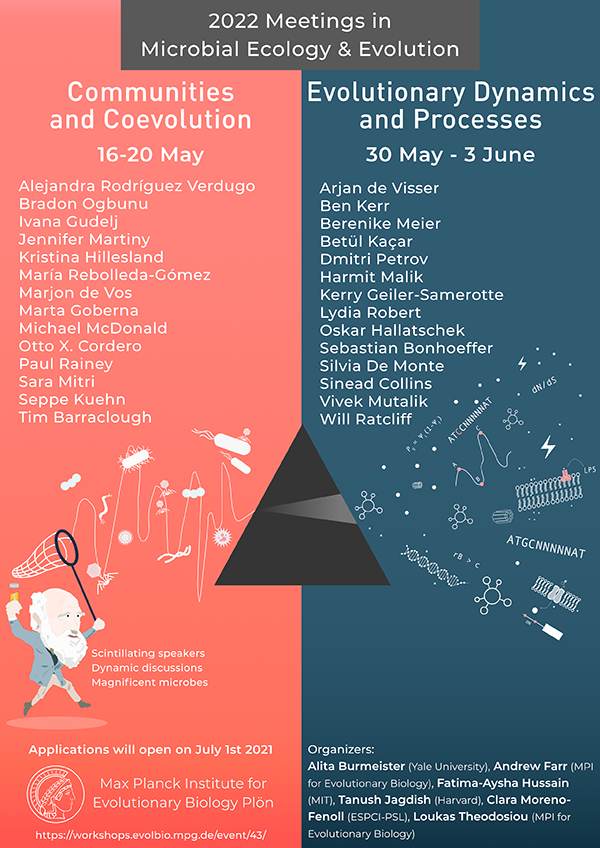Speaker
Description
Interspecific coevolutionary interactions can result in rapid biotic adaptation, but most studies have focused only on species pairs. Here, we (co)evolved five microbial species in replicate polycultures and monocultures for 10 weeks (~100 generations) and quantified local adaptation. Specifically, growth rate assays were used to determine adaptations of each species’ populations to (1) the presence of the other four species in general and (2) sympatric vs. allopatric communities. We found that species did not show an increase in net biotic adaptation: ancestral, polyculture- and monoculture-evolved populations did not have significantly different growth rates within communities. However, 4/5 species’ growth rates were significantly lower within the community they evolved in relative to an allopatric community. ‘Local maladaptation’ suggests that species evolved increased competitive interactions to sympatric species’ populations. Rapid local (mal)adaptation has important implications as species could be driven to invade allopatric communities, and greater antagonism among sympatric community members may affect community-dynamics under whole community mixing. Furthermore, we have evolved these communities for a further 64 weeks and we will presenting our preliminary work analysing the implications of such evolutionary changes over ~1 year of (co)evolution.

